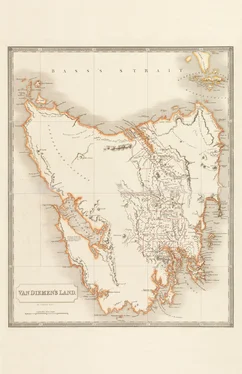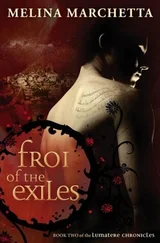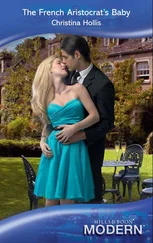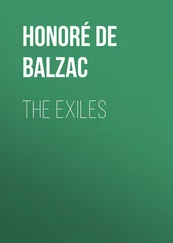Dedication
For Hayden, Will, and Eli—
adventurous wayfarers all
Epigraph
Let no one say the past is dead.
The past is all about us and within.
—Oodgeroo Noonuccal, Aboriginal poet
Contents
Cover
Title Page
Frontispiece
Dedication
Epigraph
Prologue
Evangeline
St. John’s Wood, London, 1840
Newgate Prison, London, 1840
Newgate Prison, London, 1840
Newgate Prison, London, 1840
Newgate Prison, London, 1840
Mathinna
Flinders Island, Australia, 1840
The Tasman Sea, 1840
Hobart Town, Van Diemen’s Land, Australia, 1840
Evangeline
The Port of London, 1840
Medea , The Port of London, 1840
Medea , 1840
Medea , 1840
Medea , 1840
Medea , 1840
Medea , 1840
Medea , 1840
Mathinna
Government House, Hobart Town, 1840
Government House, Hobart Town, 1840–1841
Government House, Hobart Town, 1841
Hazel
Medea, 1840
Hobart Town, 1840
Hobart Town, 1840
The Cascades, 1840–1841
Hobart Town, 1841
Mathinna
Government House, Hobart Town, 1841
Government House, Hobart Town, 1841
Government House, Hobart Town, 1841–1842
Government House, Hobart Town, 1842
Hazel
Hobart Town, Van Diemen’s Land, 1842
The Cascades, 1842
Hobart Town, 1842
Hobart Town, 1843
Hobart Town, 1843
Hobart Town, 1843
Ruby
St. John’s Wood, London, 1868
Acknowledgments
About the Author
Novels by Christina Baker Kline
Copyright
About the Publisher
Prologue
Flinders Island, Australia, 1840
By the time the rains came, Mathinna had been hiding in the bush for nearly two days. She was eight years old, and the most important thing she’d ever learned was how to disappear. Since she was old enough to walk, she’d explored every nook and crevice of Wybalenna, the remote point on Flinders Island where her people had been exiled since before she was born. She’d run along the granite ridge that extended across the tops of the hills, dug tunnels in the sugary dunes on the beach, played seek-and-find among the scrub and shrubs. She knew all the animals: the possums and wallabies and kangaroos, the pademelons that lived in the forest and only came out at night, the seals that lolled on rocks and rolled into the surf to cool off.
Three days earlier, Governor John Franklin and his wife, Lady Jane, had arrived at Wybalenna by boat, more than 250 miles from their residence on the island of Lutruwita—or Van Diemen’s Land, as the white people called it. Mathinna stood with the other children on the ridge as the governor and his wife made their way up from the beach, accompanied by half a dozen servants. Lady Franklin had a hard time walking in her shiny satin shoes; she kept slipping on the stones. She clung to her husband’s arm as she wobbled toward them, the expression on her face as sour as if she’d bitten an artichoke thistle. The wrinkles on her neck reminded Mathinna of the exposed pink flesh of a wattlebird.
The night before, the Palawa elders had sat around the campfire, discussing the impending visit. The Christian missionaries had been preparing for days. The children had been instructed to learn a dance. Mathinna sat in the darkness on the edge of the circle, as she often did, listening to the elders talk as they plucked feathers from muttonbirds and roasted mussels in the glowing embers. The Franklins, it was widely agreed, were impulsive, foolish people; stories abounded of their strange and eccentric schemes. Lady Franklin was deathly afraid of snakes. She’d once devised a plan to pay a shilling for every dead snake turned in, which naturally spawned a robust market of breeders and cost her and Sir John a small fortune. When the two of them had visited Flinders the previous year, it was to collect Aboriginal skulls for their collection—skulls that were obtained by decapitating corpses and boiling the heads to remove the flesh.
The horse-faced Englishman in charge of the settlement on Flinders, George Robinson, lived with his wife in a brick house in a semicircle of eight brick houses that included rooms for his men, a sanatorium, and a dispensary. Behind this were twenty cottages for the Palawa. The night the Franklins arrived, they slept in the Robinsons’ house. Early the next morning, they inspected the settlement while their servants distributed beads and marbles and handkerchiefs. After the noontime meal, the natives were summoned. The Franklins sat in two mahogany chairs in the sandy clearing in front of the brick houses, and for the next hour or so the few healthy Palawa males were made to perform a mock battle and engage in a spear-throwing contest. Then the children were paraded out.
As Mathinna danced in a circle with the others on the white sand, Lady Franklin kept looking at her with a curious smile.
The daughter of the chief of the Lowreenne tribe, Mathinna had long been accustomed to special attention. Several years ago, her father, Towterer—like so many of the Palawa deported to Flinders—had died of tuberculosis. Mathinna was proud to be the chieftain’s daughter, but in truth she hadn’t known him well. When she was three, she’d been sent from her parents’ cottage to live in a brick house with the white schoolteacher, who made her wear bonnets and dresses with buttons and taught her to read and write in English and hold a knife and spoon. Even so, she spent as many hours a day as she could with her mother, Wanganip, and other members of the tribe, most of whom did not speak English or adhere to British customs.
It had only been a few months since Mathinna’s mother had died. Wanganip had always hated Flinders. She’d often climb the spiny hill near the settlement and gaze across the turquoise sea toward her homeland, sixty miles away. This terrible place, she told Mathinna—this barren island where the wind was so strong it spun vegetables out of the ground and fanned small fires into raging infernos, where the trees shed bark like snakes shed their skin—was nothing like her ancestral land. It was a curse on her soul. On all of their souls. Their people were sickly; most of the babies born on Flinders died before their first birthdays. The Palawa had been promised a land of peace and plenty; if they did as they were told, the British said, they’d be allowed to keep their way of life. “But all of that was a lie. Like so many lies we were foolish to believe,” Wanganip said bitterly. “What choice did we have? The British had already taken everything.”
Looking into her mother’s face, Mathinna saw the fury in her eyes. Mathinna didn’t hate the island, though. It was the only home she’d ever known.
“Come here, child,” the governor’s wife said when the dance was over, beckoning with a finger. When Mathinna obeyed, Lady Franklin peered at her closely before turning to her husband. “Such expressive eyes! And a sweet face, don’t you think? Unusually attractive for a native.”
Sir John shrugged. “Hard to tell them apart, quite frankly.”
“I wonder if it might be possible to educate her.”
“She lives with the schoolteacher, who is teaching her English,” Robinson said, stepping forward. “She’s quite conversant already.”
“Interesting. Where are her parents?”
“The girl is an orphan.”
“I see.” Lady Franklin turned back to Mathinna. “Say something.”
Mathinna half curtsied. The arrogant rudeness of the British no longer surprised her. “What shall I say, ma’am?”
Читать дальше












